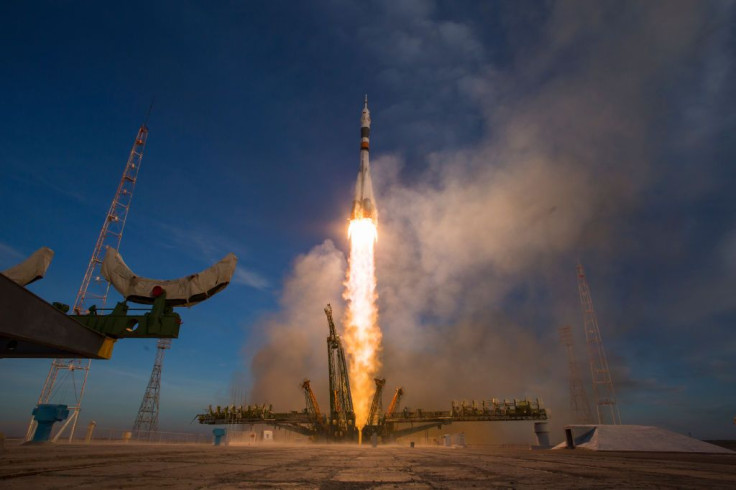Russia's Progress Spacecraft To Fly To ISS Faster Than Moscow-Brussels

Traveling to the International Space Station (ISS) may soon be faster than a flight from Moscow to Brussels.
Dmitry Rogozin, head of the Russian state space corporation Roscosmos, announced on Sunday, Dec. 16, that a second Progress cargo spaceship launch in an ultra-short, two-rotation scheme has been scheduled for March 28, according to Russian news agency TASS. The flight time for the spacecraft is only three hours.
However, Roscosmos is planning something even bigger for the future of space travel. Rogozin also revealed on Twitter that manned space flights under this ultra-fast scheme will happen in about a year and a half.
Spacecraft with crew and cargo usually take about 50 hours to reach the ISS. However, in 2013, Russia devised a six-hour route to the station that consisted of four orbits around Earth.
They didn't stop there, however, as they introduced the much faster three-hour scheme consisting of two revolutions around Earth in July. The spacecraft first to use this new scheme, the Progress MS-09 cargo spaceship, reached the ISS in just three hours and 40 minutes — five minutes shorter than a typical flight from Moscow to Brussels.
Meanwhile, Rogozin announced back in February that he and American Jim Bridenstine plan to go over the experiments on the ISS and make sure they could be used during the exploration of the moon.
He told Sputnik that they will focus the experiments more on achieving human autonomy from constant support from Earth. They hope to be able to find ways to have air, water and food supply without the constant need to wait for supplies from Earth. They also want to be able to start repairs of ISS components with the use of additive technologies.
Rogozin added that one of the plans Roscosmos has for the future is to build a full-fledged permanent base on the Earth's natural satellite. Another one of their projects is the Soyuz-5 carrier rocket, which will have manned and simplified variants. The latter will be used for commercial launches.
"Work on the Soyuz-5 rocket will be conducted in two directions. On the one hand, the corporation Energia will develop a rocket for a new piloted spacecraft, while the second version of this rocket, which is more commercial and lighter, will be developed by S7. They will make a rocket based on solutions under the Soyuz-5 project," he said, adding that this would make it cheaper and fit for launches from the Sea Launch platform.
© Copyright IBTimes 2024. All rights reserved.




















